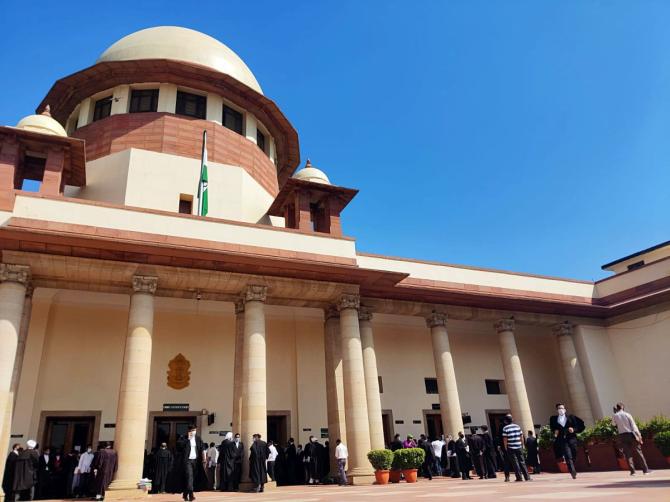 | « Back to article | Print this article |
If children can go to school at seven in the morning, why cannot judges and lawyers start their day at 9 am, Supreme Court judge Justice UU Lalit remarked on Friday.

A bench of Justices Lalit, S Ravindra Bhat and Sudhanshu Dhulia started Friday's work at 9.30 am, an hour earlier than the usual working hour of the apex court.
Justice Lalit, who is next in line to become the Chief Justice of India, said, ”In my view, ideally we should sit at 9 in the morning. I have always said that if our children can go to school at 7 in the morning, then why can't we come at 9 am.”
The remark came after senior advocate Mukul Rohatgi, appearing in one of the bail matters, lauded the bench at the end of the hearing of the case for sitting earlier than the usual time.
He said, ”I must say that this time of 9.30 am is a more proper time to start the courts.”
Justice Lalit said if the courts can start early, it can finish the day's work early and judges would get more time in the evening to read the case files for the next day.
"The courts can start their work at 9 am and rise at 11.30 am for a half an hour break and then finish the day's work by 2 pm. By doing this, judges will get more time to do more things in the evening,” Justice Lalit said, adding that this arrangement could work when there are only fresh matters and cases that don't require lengthy hearings.
Rohatgi said hopefully these arrangements could be seen more by the end of August.
To this, Justice Lalit said, ”This is just a capsule.”
The judges of the Supreme Court hear cases from 10.30 am to 4 pm on weekdays.
Chief Justice of India NV Ramana is set to retire on August 26 and Justice Lalit will take over charge from him and remain in office till November 8 this year.